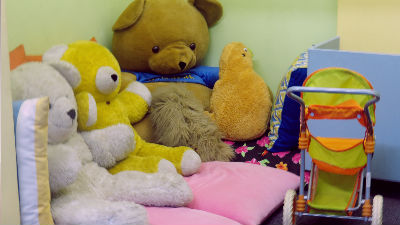In Gauteng alone, over 150 cases of sexual abuse against minors are reported monthly. In the case of sexual abuse against a minor, parents and guardians responsible are legally obliged to report the case. Often these atrocities go unreported and perpetrators go unpunished due to various challenges experienced by victims and family members who support them. The Teddy Bear Clinic is a NGO that provides medical and legal support to minors who are victims of sexual and other forms of abuse.
Clinic Director at The Teddy Bear Clinic, Shaheda Omar, says many parents who bring their children forward struggle to report their cases as they don’t receive the desired help from the police. Unfortunately due to fear, shame and alleged harsh treatment by police officers, many cases go unreported. “We have parents who come to us saying it is hard to open a case, as police don’t believe the children and send them and their parents away”, says Omar.
As a centrer that manages the process related to minors rape cases, the clinic experiences an overwhelming number of cases where parents head to the clinic as their first point of call so that a minor is given help as soon as they come forward. Shortages of equipment such as the crucial rape kit is a daily reality at the clinic.
The kit which contains items such as medical swabs and sample envelopes to collect DNA and specimens, is essential to collecting evidence which will later be used in court. “Since two years ago we have experienced a real problem as police don’t give us rape kits any more. They claim they have budgetary constraints and they will only give us a rape kit once a case has been opened, and sometimes the patient has does not want to open a case at that particular time says,” says Dr Thuto Nkobi, the Clinic Manager for the seven rape help centres around Gauteng.
Over the years there is less visible physical evidence on minors who have been abused.
Teddy Bear Clinic researcher Sheri Errington says they are faced with operations constraints. This sees them only operating on weekdays and during normal working hours from 8am-4pm. Errington also says they have noticed that over the years there is less visible physical evidence on minors who have been abused. This she says poses a difficulty in proving that a child has been abused.“It is certainly very worrying that we have noticed a decrease of between 80-90% in physical evidence on children who have either been sexually abused or those who have been abused. This means the nature of the offence in minors is changing.” she says.
With rape cases taking as long as six years to finalize, a minor’s development into different stages of growth such as adolescence is largely affected by constant court appearance, where minors face their offenders. Omar says they usually need to provide continuous support to those children because it helps them to cope better and allows them to put the incident behind them and move on.
Errington says that the rehabilitation of one sexual abuse survivor reduces their chances of committing about 300 sexual offences on other minors as adults. Errington adds that they have proven this with their diversion programme that employs various methods to help teenagers come to terms with incidences of abuse.
Even though the challenges facing minor sexual assault victims are many, centres like the Teddy Bear Clinic provide a safe place where minors and their families can receive help and support.
– By Lerato Makate


